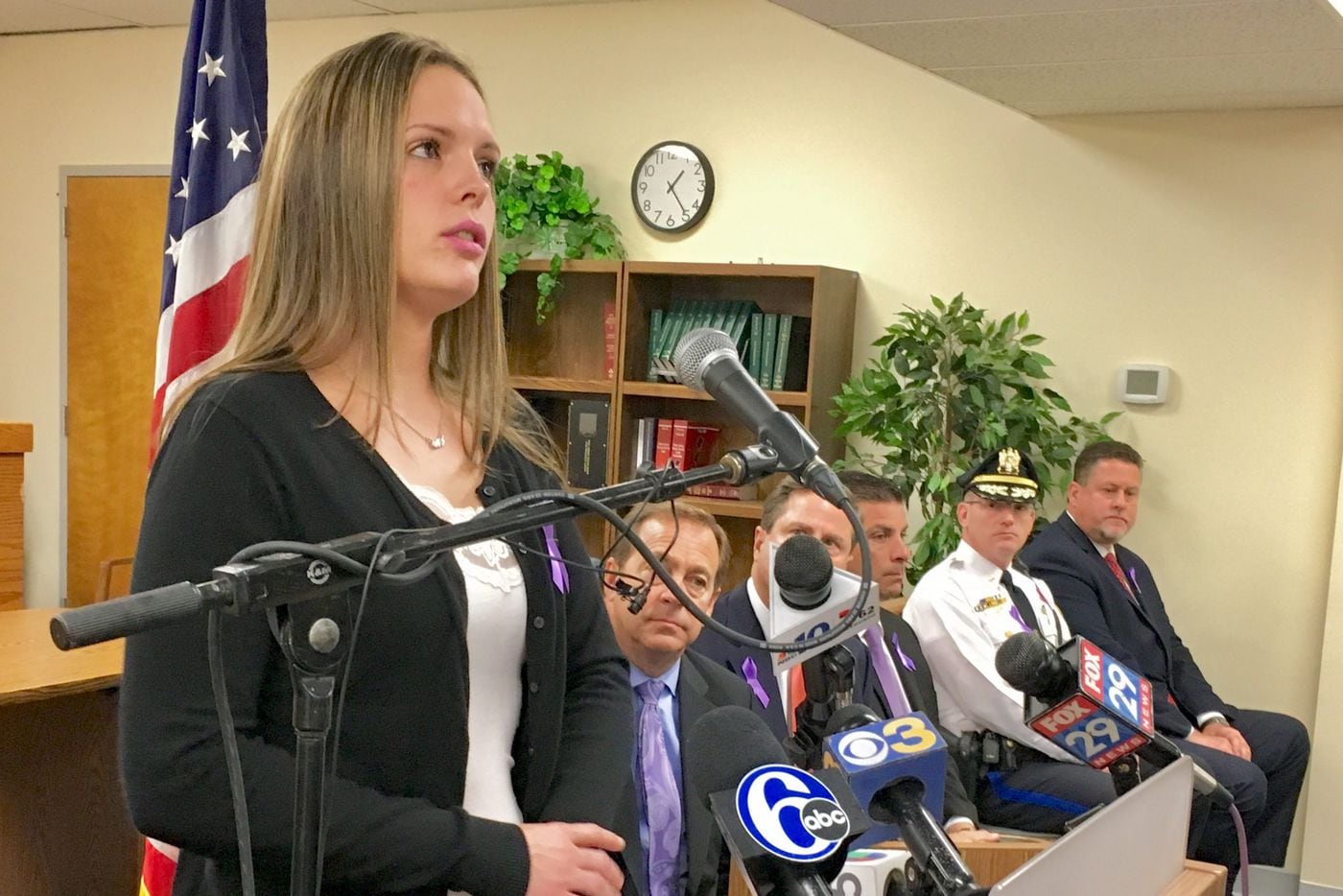In one New Jersey county, courtrooms will become a new front in the opioid battle
Submitted by New Jersey Drug Crime Lawyer, Jeffrey Hark.
A suburban courtroom may seem an unlikely venue for a lifesaving decision.
But Angel Nelke’s recovery from opioid abuse began when she appeared before a Gloucester Township judge three years ago on a shoplifting charge. She was told a drug and alcohol counselor was available to talk to her about voluntarily beginning treatment at no cost.
“I thought, ‘I might as well talk to him while I’m here,’ ” Nelke said as Camden County announced an ambitious early intervention program modeled on Gloucester Township’s pioneering Project SAVE (Substance Abuse Visionary Effort).
Nelke, 25, of Sicklerville, spoke at a Wednesday news conference in Audubon, one of the 17 communities preparing for a Jan. 1 launch of Project SAVE countywide.
The program will assign licensed, certified drug and alcohol counselors to Municipal Court cases involving low-level, nonviolent drug offenses. The service is free for defendants; the county will provide $100,000 in seed money to pay for the counselors in 2019, and Freeholder-Director Louis Cappelli Jr. said he hopes all of the Municipal Courts in the county will choose to participate in the program.
I hope so, too.
Debates about addiction’s root causes, the role of personal responsibility, harm reduction strategies and best treatment approaches are worth having. But recognizing we’re in the midst of a public health crisis that requires extraordinary responses is far more important.
Last year, 72,000 died of drug overdoses in this country, including 277 in Camden County. Ten of the dead were residents of Gloucester Township, 60 lived in Camden, 10 were from Cherry Hill, and nearly all rest were from suburban communities in Camden, Burlington and Gloucester Counties.
The county’s fatal overdose total so far this year stands at 231 — 35 more than at the same point in 2017. The number is rising despite the widespread use of naloxone, which can reverse the effects of opioid intoxication.
“One person dies in my [congressional] district every day due to overdose,” said U.S. Rep. Donald Norcross, a Camden County Democrat who co-chairs a bipartisan House task force that is focused on the heroin epidemic.
The days of regarding the disease of addiction as the fault of those who have it are over, he told the audience in Audubon. “We don’t blame people for having cancer.”
Since Project SAVE began in 2014, Gloucester Township Police Chief W. Harry Earle said, 178 of 274 defendants charged with non-violent drug-related offenses and offered treatment have accepted.
A young person — or for that matter, any defendant making their first-ever appearance in a courtroom on a drug-related charge — is more likely to have what Earle called a “vulnerable moment” of willingness to say yes to rehab. Completion of treatment is consideration when the charges are adjudicated, the chief said.
While the program does not track participants after their cases are concluded, it’s fair to say that while some have gotten clean and sober and stayed that way, others have not. Relapse is a characteristic of the beast that is addiction, with heroin perhaps the most fearsome.
“I believe anything is worth a try, [given] what I see out there,” Gary ‘Gsam’ Samuels, a self-described ex-addict who’s an outreach worker for New Beginnings Behavioral Health in Camden, said in an interview.
Steering low-level offenders toward treatment and recovery is better than imposing fines “that aren’t going to be paid anyway,” or a “revolving door” of incarceration, he said.
“Treatment can help people make better choices, help them find employment, and hold them accountable,” said Samuels. “Accountability is a big issue with addicts.”
Medical marijuana and LGBTQ activist Jay Lassiter, who originated and hosted the Heroin Uncut podcast in 2017, is more skeptical.
He has long lobbied the City of Camden to support a program to provide users with clean syringes, in order to prevent the spread of disease and provide them with a point of contact with agencies that can refer them to treatment. But he was heartened that the county is willing to see addiction as a medical, not a law enforcement, issue.
“Heroin isn’t like the alcohol that ensnared you or the crystal meth that ensnared me,” said Lassiter, who has been in recovery for years. This heroin thing is so confounding. Our tool kit has got to include much more imagination, and compassion.”
Addiction certainly is a pernicious foe — particularly in the fragile early months of recovery. I know this all too well, as does Nelke, who relapsed after treatment but went on to celebrate the first anniversary of her sobriety in May.
“I tell people trying to get clean not to stop trying,” she said.

